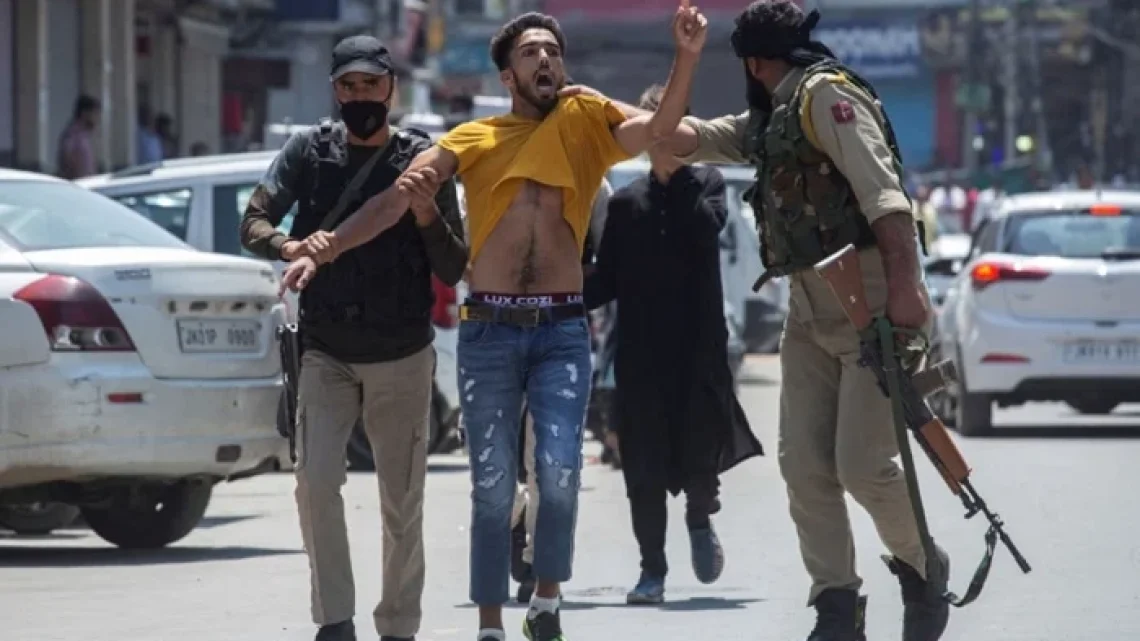
Draconian Laws in IIOJK: A Persistent Struggle Against Indian Oppression
August 7, 2024For more than seven decades, the Indian government has maintained a tight grip on Jammu and Kashmir. This has led to political turmoil, violence, and ongoing human rights violations.
The region, under Indian occupation, has seen grave human rights abuses. These include mass killings, enforced disappearances, torture, rape, political repression, and the silencing of free speech.
A series of draconian laws have been imposed to suppress the Kashmiri people. The Armed Forces (Special Powers) Act (AFSPA), Public Safety Act (PSA), Unlawful Activities (Prevention) Act (UAPA), and the Enemy Agent Ordinance (EAO) are among these laws.
AFSPA, enacted in 1958 and extended to Jammu and Kashmir in 1990, grants extraordinary powers to the armed forces. These powers include arrest without a warrant, shoot-to-kill orders, and searches without consent. The Pathribal and Machil fake encounters underscore AFSPA’s misuse, resulting in severe human rights violations.
The PSA, introduced in 1978, allows detention without trial for up to two years. It has been used extensively to suppress political dissent and arbitrarily detain activists and ordinary citizens, undermining due process in the region.
Enacted in 1967, UAPA aims to curb unlawful activities but has been misused in Kashmir. Journalists like Asif Sultan and Khuram Parvez have been targeted under this act, highlighting its role in suppressing dissent and silencing the press.
Originally a colonial-era law from 1943, the Enemy Agent Ordinance (EAO) was designed to curb espionage. However, it has been repurposed to suppress political dissent and any activity perceived as anti-state. The misuse of EAO has led to arbitrary arrests and further human rights abuses.
The application of these draconian laws erodes democratic principles, fueling alienation and unrest among the Kashmiri people. These laws have stifled voices demanding justice and accountability, crucial for lasting peace and stability in the region.
Addressing the grievances of the Kashmiri people and ensuring accountability for the abuses are essential steps towards peace. The international community must take these issues seriously and push for a United Nations resolution to address the ongoing crisis in Kashmir.

